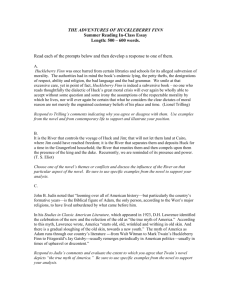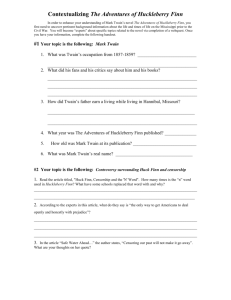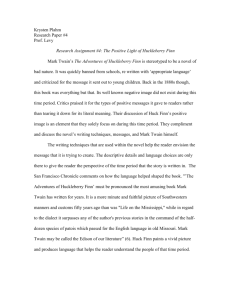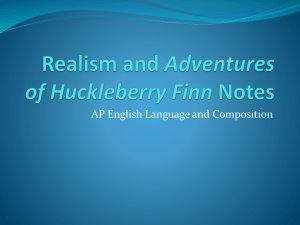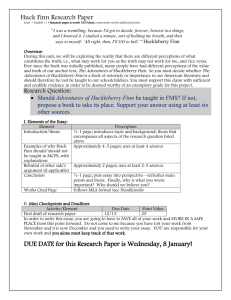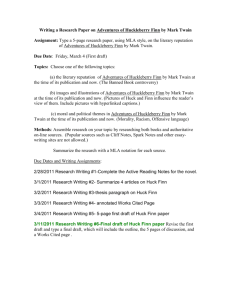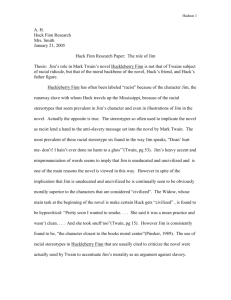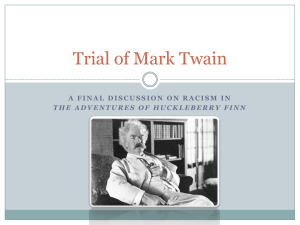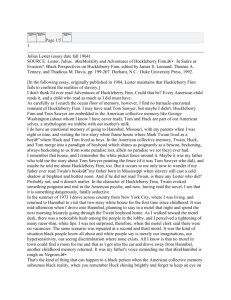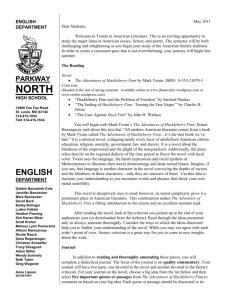Take `em to Missouri, men": Patrick McCabe`s Huckleberry Finn
advertisement
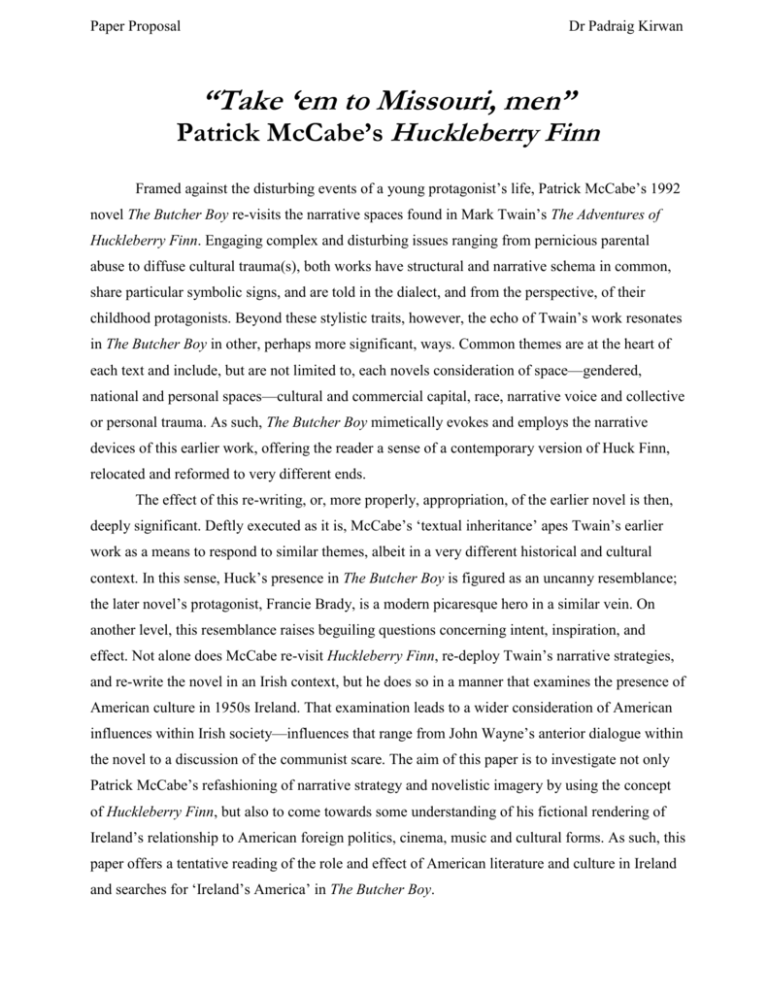
Paper Proposal Dr Padraig Kirwan “Take ‘em to Missouri, men” Patrick McCabe’s Huckleberry Finn Framed against the disturbing events of a young protagonist’s life, Patrick McCabe’s 1992 novel The Butcher Boy re-visits the narrative spaces found in Mark Twain’s The Adventures of Huckleberry Finn. Engaging complex and disturbing issues ranging from pernicious parental abuse to diffuse cultural trauma(s), both works have structural and narrative schema in common, share particular symbolic signs, and are told in the dialect, and from the perspective, of their childhood protagonists. Beyond these stylistic traits, however, the echo of Twain’s work resonates in The Butcher Boy in other, perhaps more significant, ways. Common themes are at the heart of each text and include, but are not limited to, each novels consideration of space—gendered, national and personal spaces—cultural and commercial capital, race, narrative voice and collective or personal trauma. As such, The Butcher Boy mimetically evokes and employs the narrative devices of this earlier work, offering the reader a sense of a contemporary version of Huck Finn, relocated and reformed to very different ends. The effect of this re-writing, or, more properly, appropriation, of the earlier novel is then, deeply significant. Deftly executed as it is, McCabe’s ‘textual inheritance’ apes Twain’s earlier work as a means to respond to similar themes, albeit in a very different historical and cultural context. In this sense, Huck’s presence in The Butcher Boy is figured as an uncanny resemblance; the later novel’s protagonist, Francie Brady, is a modern picaresque hero in a similar vein. On another level, this resemblance raises beguiling questions concerning intent, inspiration, and effect. Not alone does McCabe re-visit Huckleberry Finn, re-deploy Twain’s narrative strategies, and re-write the novel in an Irish context, but he does so in a manner that examines the presence of American culture in 1950s Ireland. That examination leads to a wider consideration of American influences within Irish society—influences that range from John Wayne’s anterior dialogue within the novel to a discussion of the communist scare. The aim of this paper is to investigate not only Patrick McCabe’s refashioning of narrative strategy and novelistic imagery by using the concept of Huckleberry Finn, but also to come towards some understanding of his fictional rendering of Ireland’s relationship to American foreign politics, cinema, music and cultural forms. As such, this paper offers a tentative reading of the role and effect of American literature and culture in Ireland and searches for ‘Ireland’s America’ in The Butcher Boy.
